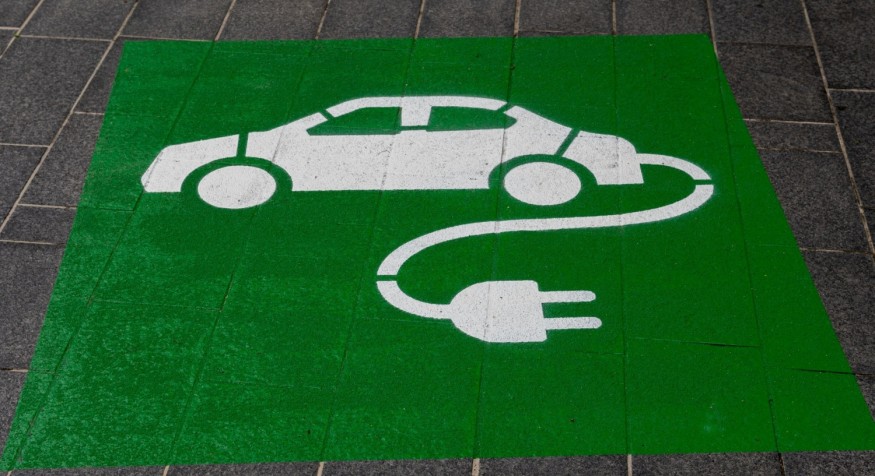
More evidence shows that electric cars can lead to fewer accidents and make the roads safer. This article explores four reasons why electric cars are safer than traditional vehicles.
Around the world, roads are shared by all types of vehicles, from cars to buses, trucks, motorcycles, taxis, mopeds, and pedestrians alike. While travel by motor vehicles has meant a major economic and social development worldwide, it has also brought many risks upon us all: road accidents are responsible for millions of deaths and severe injuries every year.
The statistics for road accidents are as scary as ever, but the adoption of electric cars may change things for the good. Data shows that, annually, 1.35 million people are killed on the roadways globally. In fact, accident injuries are thought to be the eighth leading cause of death globally. Even when they don't lead to death, car crashes are a terrifying experience. As the experts from AccidentClaims.co.uk explain, "There are no shortcuts in the healing process after a car accident. Full recovery takes a lot of time and care
This is where electric vehicles seem to be the small light at the end of the tunnel.
More evidence supports the idea that electric cars can not only help humanity in its fight against climate disaster but can also address another prevalent issue around the world: traffic-related fatalities. Thanks to their nature and the electric mechanics that characterize them, electric cars can play a crucial role in making roads across the world safer.
Keep reading below to find out the four reasons why electric cars are safer than gasoline- and diesel-powered vehicles!
1. They have more than one motor
Most drivers are used to handling vehicles with a single source of power which is an internal combustion engine. However, with electric cars, it is relatively normal to have two or sometimes four electric motors in the same vehicle.
Using more motors leads to something called torque vectoring, which refers to the possibility of distributing traction or braking to different engines inside the vehicle. This can also translate to safer vehicles.
More precisely, a turning effect is produced with different amounts of torque are applied to the left and right sides of the car. This would make the vehicle safer by simply influencing its cornering response. Besides that, an electronic stability control system also improves the safety of a vehicle by preventing the driver from losing control of the car in case of poor road conditions, like slippery roads.
The risk of rolling over is also minimal with electric vehicles. It all comes down to the fact that EVs have centred their weight in the middle of the car, which makes the centre of gravity very low.
2. They require less maintenance
Electric cars are a lot simpler than traditional vehicles with everything they have under the hood. There are simply fewer parts to take care of there. This also means that there are also fewer parts that can cause a breakdown or malfunction.
Electric cars don't have maintenance needs like oil changes, fuel filters, spark plugs, or emissions checks. Obviously, the fewer things that need replacement or can go wrong, the safer drivers are on the road.
Besides all that, when you think in perspective, fewer maintenance needs translate into fewer costs for car owners. This means that drivers will be more likely to spend on repairs when they actually do arise. In other words, thanks to reduced maintenance costs, drivers are more prone to showing responsibility and ensuring that their vehicles are in working order.
3. They resist better to collisions
Electric cars were also found to be safer, even in those cases when road accidents can't be prevented and happen. More precisely, the National Highway Traffic Safety Administration has found that the chances of the passengers of an electric car getting hurt in a car collision were lower than they were for passengers in vehicles that run on gasoline or diesel engines. Simply put, EVs keep passengers safer than traditional vehicles in case of a collision.
In crash tests conducted by the NHTSA, electric vehicles obtained a very high safety rating, thanks to the external aluminium plating that usually surrounds the battery array of these types of cars. Another reason for that is related to the extra layer of fire protection that EVs have between their batteries and passengers.
EVs also perform better in frontal crashes because the front of the vehicle is free to be designed to crumple on a frontal impact.
4. They demonstrate less flammability
Speaking of fire protection, another reason why electric vehicles are safer than traditional ones is that they demonstrate fewer chances of a fire. EV fires are a lot rare than fires occurring in gasoline-powered vehicles. In fact, data shows that about 150 gasoline-fueled car fires happen every day, not to mention the thousands of fire department responses to highway vehicle accident sites around the world.
Now, with electric vehicles, fires are rarer. EVs run on lithium-ion batteries, which are, indeed, very flammable. However, these batteries don't just burst into flames. They can lead to fire only if they are exposed to the wrong sort of conditions for a long time or if the power cells are damaged and lead to short-circuiting. However, the chances for such a thing to occur is incredibly minimal. In fact, data suggests that only one fire occurs for every 100 million lithium-ion batteries on the market.
It's, however, important to note that EV fires are more challenging to put out, and it all comes down to the nature of the battery. Yet, while a drawback, it is a small one considering that the fire will be less likely to occur in the first place.
© 2025 ScienceTimes.com All rights reserved. Do not reproduce without permission. The window to the world of Science Times.











